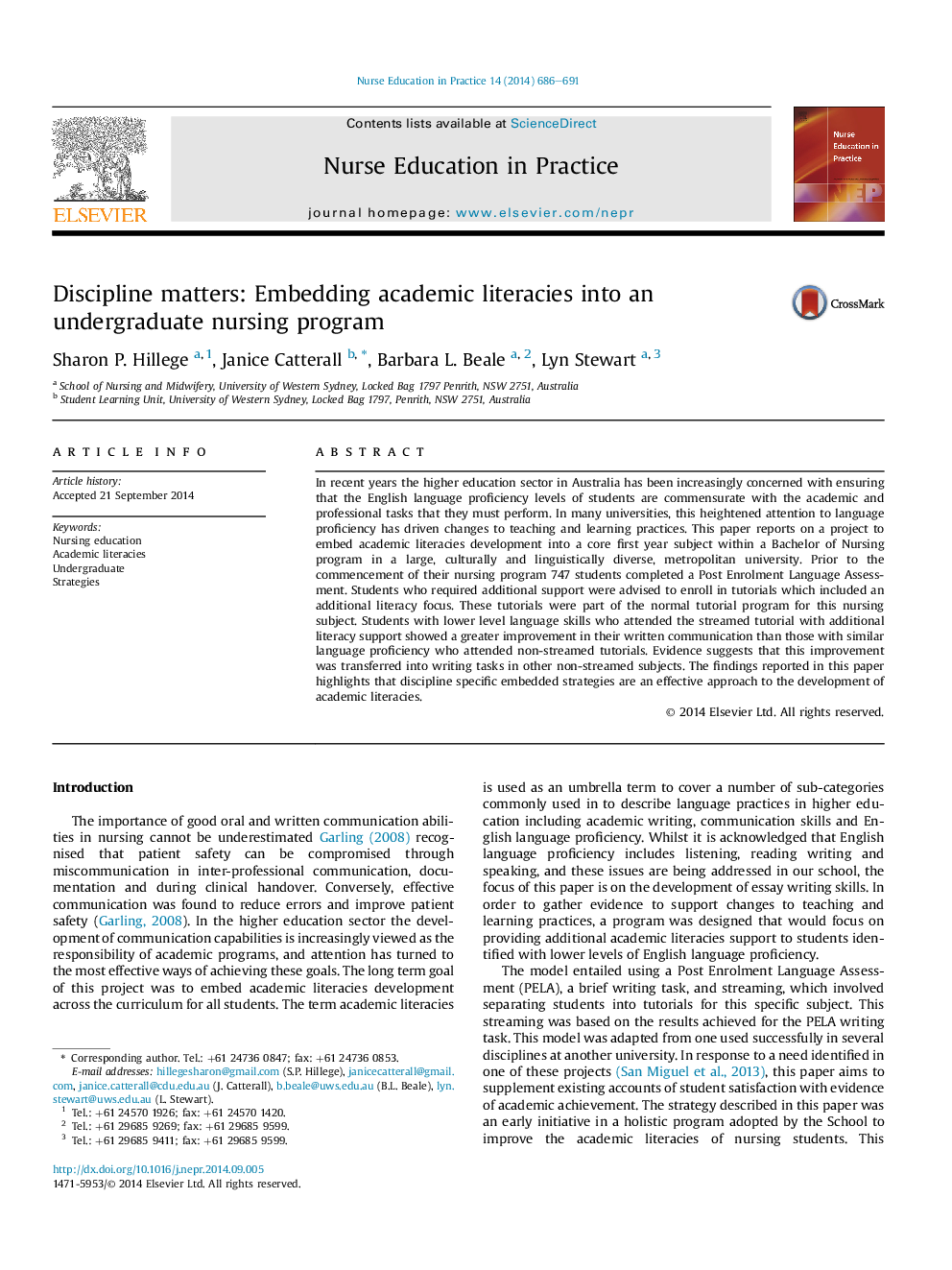| Article ID | Journal | Published Year | Pages | File Type |
|---|---|---|---|---|
| 10316032 | Nurse Education in Practice | 2014 | 6 Pages |
Abstract
In recent years the higher education sector in Australia has been increasingly concerned with ensuring that the English language proficiency levels of students are commensurate with the academic and professional tasks that they must perform. In many universities, this heightened attention to language proficiency has driven changes to teaching and learning practices. This paper reports on a project to embed academic literacies development into a core first year subject within a Bachelor of Nursing program in a large, culturally and linguistically diverse, metropolitan university. Prior to the commencement of their nursing program 747 students completed a Post Enrolment Language Assessment. Students who required additional support were advised to enroll in tutorials which included an additional literacy focus. These tutorials were part of the normal tutorial program for this nursing subject. Students with lower level language skills who attended the streamed tutorial with additional literacy support showed a greater improvement in their written communication than those with similar language proficiency who attended non-streamed tutorials. Evidence suggests that this improvement was transferred into writing tasks in other non-streamed subjects. The findings reported in this paper highlights that discipline specific embedded strategies are an effective approach to the development of academic literacies.
Related Topics
Health Sciences
Nursing and Health Professions
Nursing
Authors
Sharon P. Hillege, Janice Catterall, Barbara L. Beale, Lyn Stewart,
